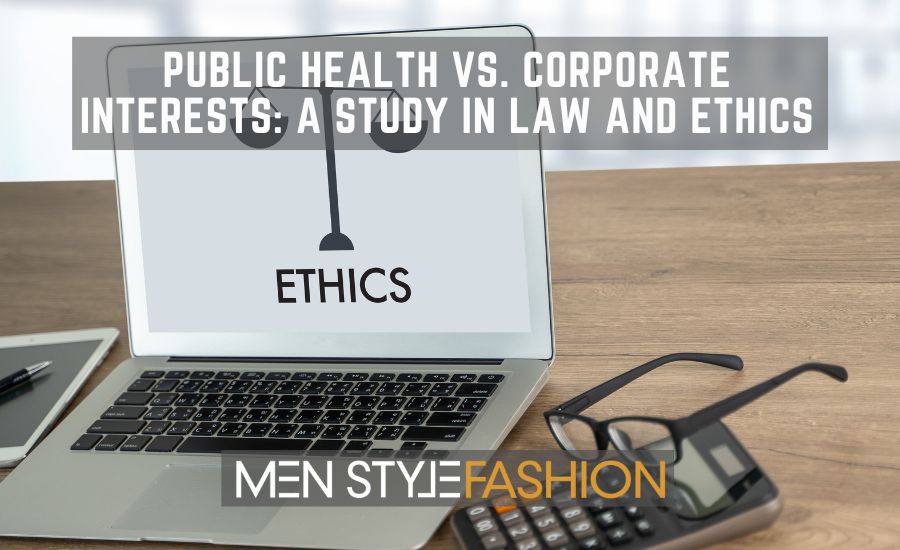A Quiet Ledger Of Adventure: The Triple Aught Design Talisman Waxed Jacket
Feb 17, 2026Public Health vs. Corporate Interests
- Sep 25, 2023
- 0 Comments
627

In an era marked by technological advancements and global commerce, the tension between public health and corporate interests has never been more pronounced. The tale of asbestos companies serves as a poignant reminder of this struggle, reflecting a broader theme that persists across different industries. This friction—where health considerations and business imperatives lock horns—requires a nuanced understanding. Let’s embark on a detailed exploration of the balancing act between legal obligations, ethical decisions, and the relentless pursuit of profits.
1. Historical Context: Tracing Back to Asbestos and Beyond
Decades ago, the world was introduced to asbestos, hailed for its impressive fire-resistant properties and versatility in construction. A marvel of its time, this substance seemed to promise a safer, more efficient future. Yet, as the years rolled on, a grim truth emerged—its dire health consequences, particularly mesothelioma, a rare form of cancer. In fact, according to ELSM Law, “The first study linking asbestos to lung disease was published in the 1920s.” The revelations bore striking parallels to the stories of tobacco, lead additives in gasoline, and controversial food preservatives. Each of these products entered the market to fanfare, only to later be vilified as public health disasters. This recurring pattern prompts the question: why do we keep missing the warning signs?
2. The Corporate Playbook: Profit vs. Precaution
At the heart of corporate endeavours lies the driving force of profit. Companies are perpetually under pressure to innovate and stay ahead of competitors. However, this race sometimes blurs the lines between aggressive marketing and genuine consumer welfare. The ethical dilemma emerges when there’s knowledge of potential health hazards that might be downplayed or even intentionally obscured from public view. It’s a matter that transcends mere legality: is it morally justifiable to prioritize immediate monetary gains over the health and safety of consumers?
3. The Legal Arena: Setting Boundaries and Drawing Lines
The emergence of public health concerns inevitably ushers in a wave of legal scrutiny. Judicial systems across the globe scramble to address the oversights and harms of the past while preempting potential future challenges. This reactive approach often pits updated regulations against well-established corporate strategies, resulting in protracted legal battles. These battles not only seek justice for affected individuals but also aim to recalibrate the balance between commercial freedoms and societal safeguards. This dynamic paints a vivid picture of the complexities involved in drafting and enforcing regulations in a constantly evolving marketplace.
4. Ethical Reflections: Beyond the Courtrooms
Stepping outside the confines of courtrooms and legal jargon, the broader domain of ethics takes centre stage. It’s where the corporate conscience should ideally reside. Envision a scenario where companies are not bound by legal verdicts but are self-driven to prioritize public health. While it might sound idealistic, the emerging emphasis on brand ethics and corporate social responsibility suggests a paradigm shift in this direction. Businesses are beginning to realize that sustainable practices and ethical considerations can enhance brand image and customer loyalty, proving that ethical operations can also be profitable.
Addressing the tug-of-war between public health and corporate aspirations isn’t a responsibility that falls solely on the shoulders of businesses. Consumers, equipped with information and the power to choose, have a crucial role to play. Through conscious consumption, support for ethically operated brands, and an unwavering demand for transparency, consumers can exert substantial influence on corporate behaviour.
The intricate dance between public health and corporate interests is laden with both challenges and learning opportunities. Instead of a blame game, the way forward entails collaboration, understanding, and shared responsibility. As our society continues to mature, there remains a glimmer of hope that we’ll achieve an equilibrium where public health and corporate ethics seamlessly coalesce, setting the stage for a brighter, more conscientious future.
Publisher: Source link







